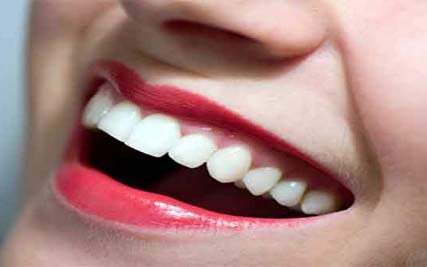
Life Desk :
Your wisdom teeth could hold the clue to treating diseases affecting the cornea, a major cause of blindness worldwide, says a new research.
“Stem cells from the dental pulp of wisdom teeth can be coaxed to turn into cells of the eye’s cornea and could one day be used to treat corneal blindness,” said the researchers.
“The findings indicate the wisdom teeth could become a new source of corneal transplant tissue made from the patient’s own cells. Corneal blindness, which affects millions of people worldwide, is typically treated with transplants of donor corneas,” explained senior investigator James Funderburgh, professor of ophthalmology at the University of Pittsburgh School of Medicine.
“Shortages of donor’s cornea and rejection of donor’s tissue do occur, which might result in permanent blindness. Our work is promising because using the patient’s own cells for treatment could help us avoid these problems,” said Funderburgh.
The researchers proved that stem cells of the dental pulp, obtained from routine human third molar, or wisdom tooth, could be turned into corneal stromal cells called keratocytes.
The team injected the engineered keratocytes into the corneas of healthy mice, where they integrated without any signs of rejection. They also used the cells to develop constructs of corneal stroma akin to natural tissue.
The study appeared in the journal Stem Cells Translational Medicine.
-Internet
Your wisdom teeth could hold the clue to treating diseases affecting the cornea, a major cause of blindness worldwide, says a new research.
“Stem cells from the dental pulp of wisdom teeth can be coaxed to turn into cells of the eye’s cornea and could one day be used to treat corneal blindness,” said the researchers.
“The findings indicate the wisdom teeth could become a new source of corneal transplant tissue made from the patient’s own cells. Corneal blindness, which affects millions of people worldwide, is typically treated with transplants of donor corneas,” explained senior investigator James Funderburgh, professor of ophthalmology at the University of Pittsburgh School of Medicine.
“Shortages of donor’s cornea and rejection of donor’s tissue do occur, which might result in permanent blindness. Our work is promising because using the patient’s own cells for treatment could help us avoid these problems,” said Funderburgh.
The researchers proved that stem cells of the dental pulp, obtained from routine human third molar, or wisdom tooth, could be turned into corneal stromal cells called keratocytes.
The team injected the engineered keratocytes into the corneas of healthy mice, where they integrated without any signs of rejection. They also used the cells to develop constructs of corneal stroma akin to natural tissue.
The study appeared in the journal Stem Cells Translational Medicine.
-Internet

